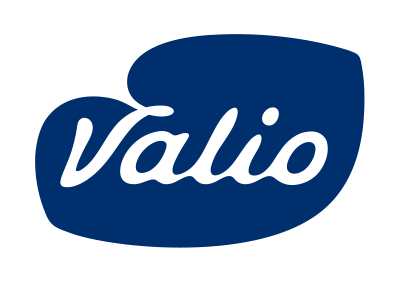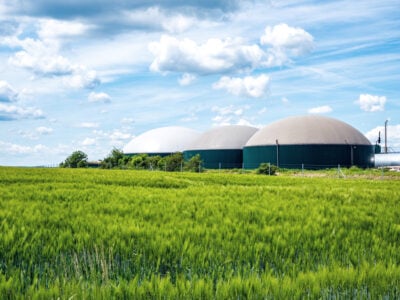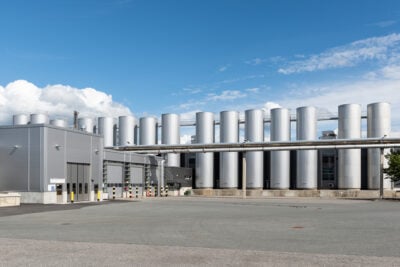Exactly one year ago, Valio began to pay a sustainability bonus to dairy farmers that commit to various measures to promote animal welfare, such as planned healthcare for the animals. The goal is for all of Valio’s dairy farms to be included in the sustainability bonus and planned animal healthcare by 2020. Currently, 96 percent of our milk is sourced from farms that participate in planned healthcare. Planned and preventive healthcare is the basis of animal health, and therefore also that of Valio’s business operations.
Valio’s historical Quality and Production method reforms have been in place for one year this January. What we’ve been calling animal welfare reforms are most importantly aimed at providing the cows a better, healthier life. Planned healthcare has an effect on not only animal welfare, but also the farm’s economy: the healthier the cows, the better they produce milk.
– Providing a better life for our animals through planned healthcare means that a vet visits a farm at least once per year and records their findings in the national cow health register, Naseva. There is a 200-point list that the vet goes through, which includes various animal care, health, welfare and barn conditions, as well as tracking cow morbidity and medication needs. Visits always include the creation of an action plan, says Valio’s primary production director Juha Nousiainen.
From the beginning of 2018, Valio has paid an extra one cent per litre to entrepreneurs who have proven themselves committed to sustainable dairy production. As an example, a 60-head herd would earn a farm an extra 6,000 euros per year. To receive the sustainability bonus, each dairy farm must, in addition to implementing preventive healthcare, also implement regular monitoring of the condition of the hooves. They must also ensure that pain relief and sedatives are given to calves as part of disbudding. This has long been standard practice at most of our farms. Our production manuals state that every new barn must be built as a free-stall, where the cows can move about, be milked, and eat at their own pace. Finland’s milk production is peculiar for the fact that we do not feed our cows soy, using instead farm-grown grass feed.
Valio is a company owned by roughly 5,000 Finnish dairy farms, and 82% of those farms are currently receiving the sustainability bonus. One year ago, that number was 76%.
Finnish cows among the healthiest in the EU
Finnish cows are among the healthiest in the EU, and antibiotics are only used as prescribed by a veterinarian to treat illness, never as a preventive measure. Animal health and welfare are also directly connected to human welfare: the less we medicate our production animals, the better we can keep the global threat of antibiotics resistance in check, to keep antibiotics-resistant bacteria strains from forming. In Finland, antibiotics are used at a significantly lower rate than what is usual in the EU.
To support its dairy farmers in their daily work, Valio has two of its own veterinarians and roughly 20 advisors that work for the cooperatives, as well as a laboratory service that produces analysed data on feed nutrient content and milk purity, among other things. Valio and its cooperatives also hold a variety of training courses for dairy farmers. In addition, Valio is actively involved in research and development programmes that aim for better animal health and welfare.
Animal welfare linked to climate change
Valio also aims to meet the challenge of climate change. This is why, in October 2018, we announced that we are aiming for a carbon-neutral milk chain.
– We acknowledge the environmental effects of milk production, and work actively to reduce them. What we are aiming for is for our carbon footprint to be zero in the future, says Juha Nousiainen.
One part of the carbon-neutral milk chain is the Power Cow project, which aims specifically towards improving cow and calf health and welfare. This work combines improving animal welfare: and reducing the environmental effects of milk production: the better the cows are doing and the longer they live, the less they generate methane per litre of milk produced.
Our climate work also includes courses in what is called carbon farming. Valio will begin to train dairy farmers in carbon farming in the spring of 2019 with the Baltic Sea Action Group. Two hundred farms will be included in the first phase.
– Fields and farmers can be a part of the solution to climate change. A healthy soil can bind and store atmospheric carbon. It’s efficient at holding nutrients, reducing nitrogen and phosphorus spills into water systems, among other things. Combined with the right kind of field cultivation and a circular economy, cattle raising may also be a sustainable part in fighting climate change. There are already many farms that make use of carbon farming practices, says Juha Nousiainen.



